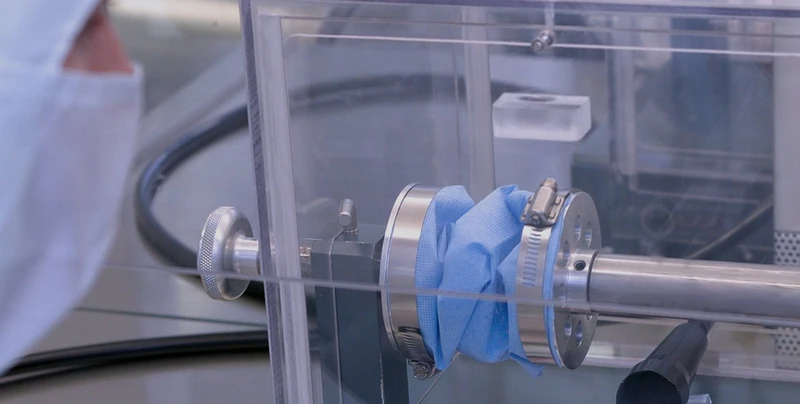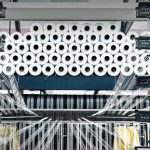 German Textile and Fashion Industry Issues Urgent Call for Economic Reform Ahead of 2025 Federal Election
German Textile and Fashion Industry Issues Urgent Call for Economic Reform Ahead of 2025 Federal Election
Berlin, Germany – The German Textile and Fashion Association (textil+mode), representing over 1,400 companies and employing more than 120,000 people, has unveiled a comprehensive manifesto ahead of the 2025 federal election. This powerful call for reform addresses critical challenges facing the industry and outlines actionable solutions to safeguard Germany’s economic future. The manifesto advocates for systemic changes to ensure competitiveness, sustainability, and innovation in one of Germany’s most vital industrial sectors.
The manifesto begins by emphasizing the pivotal role of the German textile and fashion industry as a link in industrial value chains and a contributor to high-quality, innovative products. The industry not only provides employment but also fosters research and development, pays taxes locally, and strengthens community life. However, the Association warns of serious consequences if political and economic policies do not undergo immediate and transformative change.
A key concern raised in the document is the overwhelming burden of excessive bureaucracy, particularly sustainability-related laws and reporting requirements that disproportionately affect German manufacturers. These regulations, while well-intentioned, have diminished Germany’s global competitiveness, making it increasingly difficult for companies to operate on an even playing field with international rivals. The Association calls for a systematic reduction of bureaucratic hurdles, including an immediate moratorium on new regulations for the next three years.
Germany’s isolated energy and climate policies are also highlighted as a significant barrier to industrial growth. The Association calls for an end to Germany’s unilateral approaches and advocates for alignment with European-wide targets. The manifesto urges the suspension of the national CO2 pricing mechanism until a cohesive and effective emissions trading system is established across the EU. These measures aim to balance ecological ambitions with economic realities while fostering open and practical discussions on achieving climate goals.
The manifesto underscores the urgent need for greater German influence in European policymaking. It stresses the importance of harmonizing regulations across the EU to enhance competitiveness, specifically by eliminating the practice of “gold plating,” where Germany imposes additional requirements beyond those mandated by EU regulations. Clear and consistent implementation of EU policies is essential to prevent unnecessary burdens on German businesses.
Environmental policy also features prominently, with the Association advocating for a science-based approach to chemical regulations. Blanket policies, which lack nuanced understanding, risk stifling innovation and driving critical segments of the textile industry out of Europe. From water-repellent fabrics to functional textiles and medical applications, the survival of high-value segments depends on practical and feasible regulations supported by long-term strategies.
The manifesto addresses issues of social responsibility and workforce development. It highlights the dangers of increasing state interference in areas traditionally governed by social partnerships, such as minimum wage determinations. The Association calls for a roadmap to lower social security contributions to below 40 percent and emphasizes the importance of fostering strong partnerships between employers and employees to maintain the efficiency of the welfare state.
Budgetary and fiscal policies are also focal points of the manifesto. The Association calls for the re-prioritization of government spending, focusing on investment-driven growth, climate-neutral transformations, and industrial competitiveness. While supporting the principle of the debt brake, the document advocates for targeted borrowing to fund urgent investments in infrastructure, energy, and technological advancement.
The manifesto critiques Germany’s waning influence on international trade and its failure to capitalize on free trade agreements. It stresses the need to simplify customs procedures, finalize outstanding trade deals, and revive negotiations for an EU-US trade agreement. Strengthening Germany’s position in global markets is viewed as an essential step toward securing long-term economic stability.
On the topic of circular economy, the Association highlights its potential to combine environmental responsibility with economic prosperity. The manifesto urges the development of a comprehensive national circular economy strategy that fosters innovation, reduces waste, and promotes resource efficiency. Harmonized and industry-specific extended producer responsibility (EPR) systems, along with practical ecodesign requirements, are necessary to ensure that environmental goals do not compromise industrial competitiveness.
The manifesto does not shy away from pointing out the shortcomings of current labor and social policies. The Association calls for greater flexibility in working time regulations, arguing that the current framework is outdated and fails to accommodate the demands of a digital and globally competitive economy. It also emphasizes the need for stricter measures to reintegrate people into the labor market, including sanctions for those who refuse reasonable employment offers.
Energy and climate policies receive significant attention, with the manifesto calling for an open and technology-neutral approach to achieving climate goals. Germany’s previous exclusion of solutions like nuclear energy, natural gas fracking, and carbon storage is described as a mistake that has narrowed the path to climate neutrality. The Association urges an unbiased reassessment of these technologies to secure Germany’s future as an industrial hub.
Finally, the manifesto addresses the need for comprehensive tax reform to reduce the tax burden on companies and enhance Germany’s attractiveness as an investment destination. The Association advocates for a reduction in corporate taxes and modernization of income tax policies to align with international standards.
The German Textile and Fashion Association’s manifesto is a bold and comprehensive document that outlines the steps needed to ensure the long-term competitiveness and sustainability of one of Germany’s most essential industries. By addressing these challenges head-on, the Association calls on policymakers to work collaboratively to create a business-friendly environment that fosters innovation, strengthens Germany’s position in global markets, and secures the economic future of its citizens.
 German Textile and Fashion Industry Issues Urgent Call for Economic Reform Ahead of 2025 Federal Election
German Textile and Fashion Industry Issues Urgent Call for Economic Reform Ahead of 2025 Federal Election




